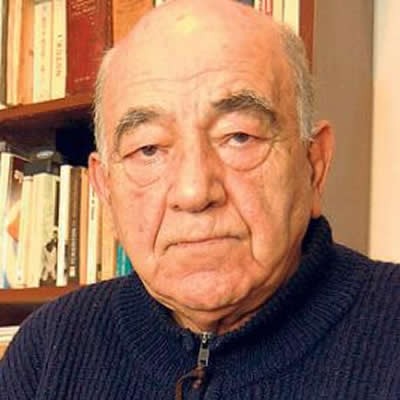Kemal H. Karpat, the former chair of Ottoman and Turkish Studies at the University of Wisconsin-Madison and Emeritus Distinguished Professor of History, passed away in Madison, Wisconsin, on February 20, 2019, at the age of 96. On February 25, 2019, there was a state funeral in Istanbul under the auspices and attendance of the Turkish President, and Karpat is laid to rest at the Fatih Mosque graveyard, the burial site of sultans and select Ottoman and Turkish dignitaries.

A giant figure in the field of Ottoman and Turkish History, Karpat was the recipient of numerous awards for his scholarship: the Presidential Medal of Honor by the Turkish Government (2016); an Honorary Award from the Turkish Grand National Assembly (2009); the Medal of Independence from the Romanian Government (1978); Awards of Excellence and Honorary Memberships from the Turkish Academy of Sciences (1996, 2014) and from the Turkish Historical Society (2006); the Medal of Scholarly Excellence from Bucharest University (1978); and honorary doctoral degrees from Ovidius University (1993) and Babes-Bolyai University in Romania (2015).
Professor Karpat, who pioneered the study of late Ottoman history, focused on the period's great ideological legacies: the rise of ethnic nationalism and of Islamic political discourse. In both cases, his emphasis on the socioeconomic roots of intellectual change influenced a generation of scholars. Karpat also wrote extensively on more recent Turkish history, with noteworthy works on Turkish foreign policy, Turkish migration and on the "squatter settlements."
"Building on the foundation laid by his scholarship, most historians now take for granted that the roots of the modern Turkish Republic are to be found in the late Ottoman period,” said Laird Boswell, chair of the history department at UW-Madison.
At UW-Madison, Karpat served as director of the Center for Turkish Studies, contributing funds to its endowment. He also demonstrated an enduring commitment to the University and to his field of study through the endowment of a professorship in Ottoman and Turkish History in the UW-Madison history department in 2016. The university awarded him a Hilldale Award, which recognizes distinguished contributions to teaching, research and service, for the 1995-96 academic year.
Among his dozens of books and hundreds of articles, Karpat’s most important contributions are Turkey’s Politics: The Transition to a Multi-Party System, Ottoman Population: 1830-1914 and The Politicization of Islam: Reconstructing Identity, State, Faith, and Community in the Late Ottoman State. In addition, he edited and contributed to the influential volumes The Ottoman State and Its Place in World History (1974) and The Ottoman Past and Today's Turkey (2000).
Karpat was the founding member and past president of the Middle East Studies Association, a constituent society of the American Council of Learned Societies. He directed the Institute of Turkish Studies (housed at Georgetown University) and the Association of Central Asian Studies. He served as an advisor on Middle Eastern Policy for the administration of President Jimmy Carter.
After graduating from the University of Istanbul in 1947, Kemal Karpat practiced law in Istanbul before coming to the United States for graduate studies. He received a Ph.D. from New York University in 1957. He then served on the faculty of the University of Montana (then known as Montana State University) and became a founding member of the Middle East Technical University in Turkey in 1958-59. In 1962, he returned to New York University, where he taught until invited by the late E. David Cronon, dean of the UW-Madison College of Letters & Science, to establish the study of Ottoman and Turkish history in UW’s history department in 1967. His prominence in the field made the UW-Madison a destination for scholars of the Ottoman Empire and Turkey from all over the world. A beloved teacher, Karpat trained dozens of Ph.D. students and taught thousands of undergraduates. Like many of his students, he was an avid fan of UW-Madison athletics. He rarely failed to watch Badger football and basketball games or to attend them in person when he could.
Following his retirement from teaching in 2003, Karpat continued to publish and deliver scholarly papers and to edit the International Journal of Turkish Studies, a journal that he had established.
--Deniz Balgamis, Associate Director, UW-Madison Center for Turkish Studies and Karl B. Shoemaker, Professor of History, UW-Madison